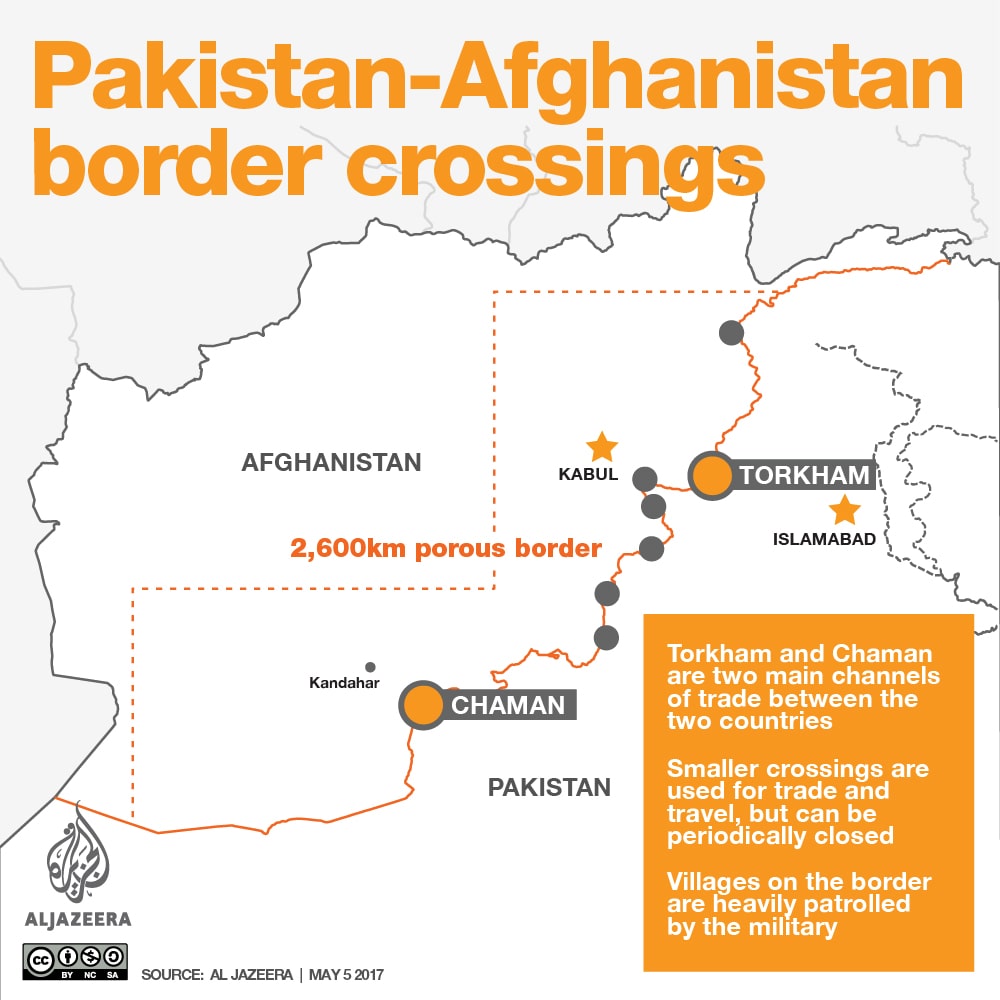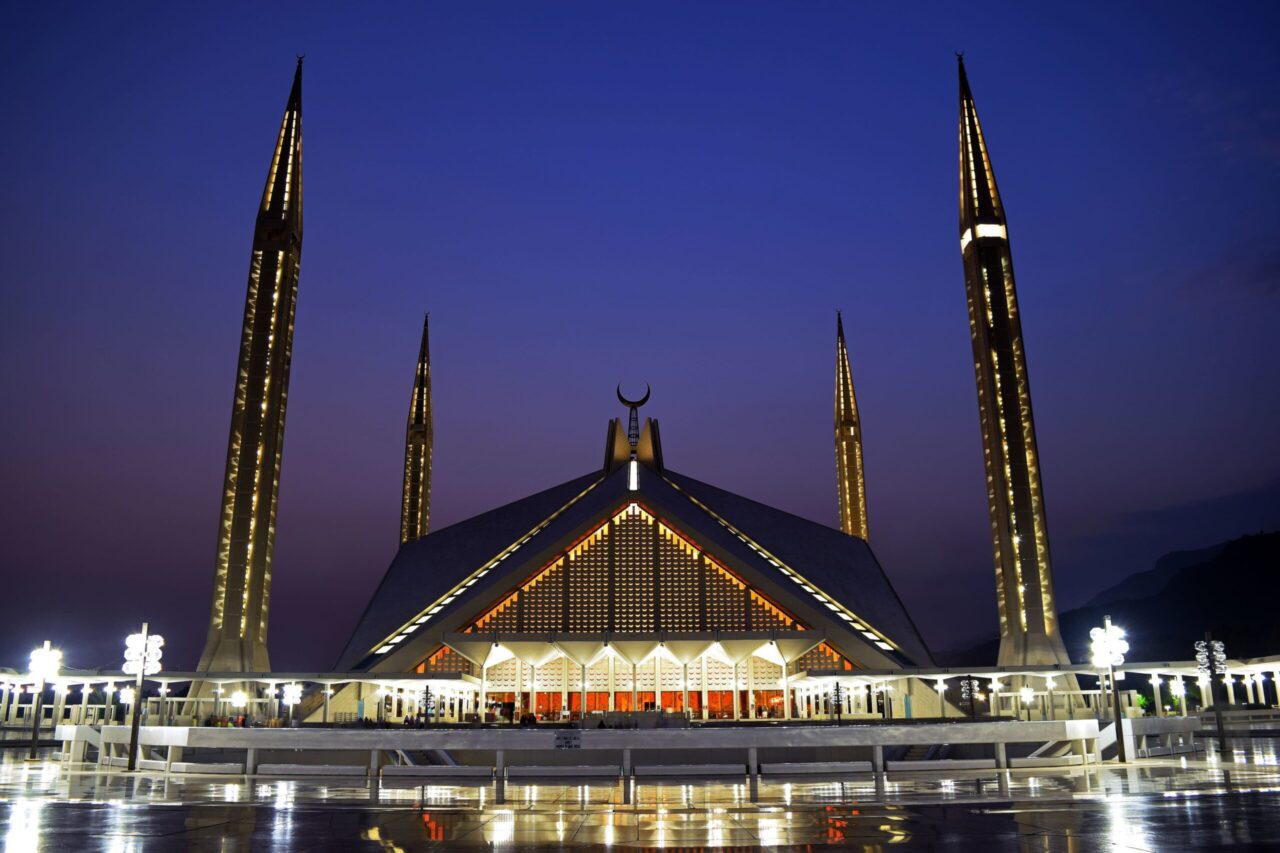Consecutive years of war in Afghanistan left no choice for its war-torn residents but to start migration. Most of the emigrants, including my family, found migration to Pakistan the most favorable, as parts of our community were locals of Pakistani regions long before the partition of Sub-continent.

Pakistan shares an immense border stretching 1615 miles (2600 km) with Afghanistan. Major border crossings between the two countries are in Torkham, between Peshawar and Jalalabad and in Spinboldak, Chaman between Kandahar and Quetta.
At the time of migration, I was barely three years old. Therefore, I do not have a memory about the comfort or uneasy part of the journey, and also the routes we took to reach Pakistan. According to my mother we journeyed through Kandahar and crossed Spinboldak to reach Quetta, the capital of Balochistan, the land our ancestors started inhabiting in the year 1840.
Our community is based in two main regions of Quetta named, Hazara Town and Mari Abad. Mari Abad was densely populated. Hazara Town, on other hand, had round about 2000 Hazara Families, and the property rents and plot prices were considerably cheaper there. My father chose to settle in Hazara Town though his kins and relatives were residents in Mari Abad.
My father, born in 1963 in Afghanistan, with a gap of ten years from his elder brother, have spent most of his years in Quetta, Pakistan. In his adolescence to early adulthood, he used to take trips to Quetta to visit his uncles. After he got married, their home served as a home away from home since Quetta was a rest station between Afghanistan and Iran. Iran was a dream destination for people looking forward to earning a living.
Life was hard for my father in the early years of our migration to Pakistan. He had left his parent’s and brothers to start a new life in Pakistan, with only enough money to survive for somedays. I won’t be able to describe it as he is the one whose gone through all those hardships and did everything to provide for us and keep us safe.
He enrolled my name in the preparatory class in the only high school for boys in Hazara Town. It was an Urdu-medium government funded school; however, it was prominently known as Master Khadim School, with the name of the teacher whose unwavering struggles made it possible to have a government funded High School in Hazara Town.
I studied in Master Khadim School for 7 consecutive years. There, I was not a bright student in the preparatory classes, I mostly bumped school too. I failed 2nd standard, and I had to study it another one year to pass it. The last year, I scored well and got 2nd Position in 4th standard.
Corporal punishment was at top level in the government schools, and we were their subjects. I have been slapped on my face and hit hard with long round tapped wooden sticks on my buttocks while posing like a hen, taking my ears with my hands coming from between my legs, for not having a pen, an incomplete assignment, for being late and sleeping in the class and other smallest of matters.
Then, I was enrolled in a Co-educational Private School for some years, then I joined another Co-ed Private School. The corporal punishment was also common there but not to that extent, perhaps because both girls and boys were studying together. There, mostly, hands were at risk of getting multiple hits, and the practice of verbal abuse and degradation was more common.
I was a bright student and consecutively secured top positions in my classes: especially 8th, and 9th standard, and 10th to come, were consecutive 1st Position. I was also bright at math, I got 3rd position among all the participants of all Baluchistan math Olympia in 8th standard. The awards were certificates and cash prize.
The following year, I could not participate in state level math Olympia of 9th standard in Lahore, the winners of whom were destined to represent Pakistan in international level, due to my Pakistani ID and documents issues. Most of my school mates could not continue their studies further after 8th standard. They attended classes in school but could not participate in Board Exams, a national level examination conducted by provincial government.
Balochistan Board Examinations were conducted at the end of 9th standard. The name suggests a type of examination that is strictly controlled and given at most priority in terms of avoiding cheating. However, it is an examination where the janitors, office clerks, teachers get rich for a month. They provide all the help you need in exchange of money. You get answers scripts, solved question papers, books, and a private room to fill your paper with no distraction.
One of the excuses for this behavior is their good will for the future of participating kids. It is made this way so that all students may pass, however, many still remains fail.
I was the person who used to seriously prepare for exams and put everything else at rest during those days. After my experience with Board Exams, I found an excuse for not doing it anymore. On examination days, after submitting my examination papers, I spent all the money I had received as a cash prize on playing computer games in a Game Zone.
My father, during all these years, provided for the family of 3 sons and 4 daughters. I am third in line and the eldest of his sons — His first child was a son born in Afghanistan, but he didn’t survive. I wish he did, that way perhaps life might have been easier on him.
He had been jumping from business to business. Some did not get well on, so he had to stop them. The ones that got well got ruined due to partnerships. Through all these hardships he had managed to give us our own home for 7 years.
However, it was getting hard to make ends meet. So, he sold the business he had. It was a computer accessories shop that dealt in computer repairing services, selling software and games CDs and DVDs, and also a mini PCO, which connected people locally, through local service providers, and internationally by Al-Thuraya Mobile Satellite.
He also took loan from his friend and arranged his travel to Saudi Arabia, where he was about to have a job as a waiter in a restaurant.
I was about to embark on my early adulthood. I had turned 18 originally, and 21 years and 8 months according to my Pakistani documents. My father encouraged me to apply for my Pakistani Computerized National Identity Card.
He had applied for his card in the year 1982 when he had crossed 18 years of age, and later in 1990 he applied for my mother’s card. In those days, for National Identity Card to be issued a guardian’s ID card was required. His guardian was his uncle.
My paternal grandmother was the youngest and the only sister of 4 brothers. His brothers immigrated and settled in Sialkot, Quetta’s ancient named. However, my grandmother settled with my grandfather in Herat, Afghanistan. They travelled to Quetta to visit her brothers often, but they didn’t consider settling in. From Herat they relocated to Kandahar and were settled there for years before buying lands in Anguri, Jaghori, a district of Ghazni Province in Afghanistan.
Thinking about visiting different offices all by myself for CNIC made me nervous. I had not done things on my own before, therefore, I was reluctant to go for it. On constant badger, I went to NADRA office located at Double Road with all the required documents, both parents’ Computer National Identity Cards and old cards, and my father’s uncle’s card. It all went well.
After 30 days, I visited the office again to check if my card was issued. To my surprise, it was blocked — FC Block. To unblock it I had to submit a block form filled with all the details of my parents, provide a record from 1974, and get them attested by 16-grade gazetted Officers, and also get interviewed by a panel of NADRA officers.
Others were fine, but to be interviewed by a panel of middle aged or fully aged men all by myself overwhelmed me. I did not know any 16-grade government officer either. So, whenever, I was asked about my CNIC, I did my best to change the topic or evade it by any means.
After high school, I had to enroll in college, for which I had to have my CNIC since I had crossed the legal age. I had no choice but to go for it before I missed a year. I bought a block form and added all the details but didn’t know any 16-grade government official. My father told me to go to his uncle. I went, his son did it for me through is officer.
I went to NADRA, Killi Gul Muhammad on Airport Road. This cell was responsible to deal with all the blocked cards, and unblocking requests. On reaching there, I saw tens of people in lines in front of one operating window. There were other ten in line in front of office doors, and some were sitting on chairs at a poorly managed waiting area.
I submitted the block form not once, not twice but thrice. And each time I had to sign it from a different 16-Grade government official since I didn’t have the face to go to the same person requesting the same thing again and again. It took me more than a year to reach to the interviewing panel. After 30 days from the interview, my CNIC got issued with the expiry in 10 years.
Since it took too much time, I persuaded a lecturer, from college staff, to help me in the enrollment process through my B-Form. I enrolled in Faculty of Science, Pre-Engineering, at Government Musa Khan Inter College. The College is named after General Muhammad Musa Hazara, a Pakistani senior military officer who served as the 4th Commander-in-Chief of Pakistan Army from 1958 to 1966, under President Ayub Khan.
to be continued…




2 thoughts on “Migration to Pakistan: The Best Refuge, Yet an Unpromised Home”